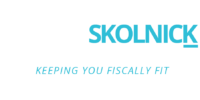IRS PROVIDES SAFE HARBOR FOR PPP RECIPIENTS CLAIMING DEDUCTIONS
The IRS issued Revenue Procedure 2021-20 on Thursday April 22nd. This revenue procedure provides a safe harbor to PPP borrowers that received loans, either had them forgiven or expected them to be forgiven and did not deduct expenses because of IRS guidance issued during 2020.
The IRS had issued guidance during 2020 which stated that any expenses paid with forgiven PPP funds were not allowed to be deducted based on the fact that the forgiven funds were not taxable income. The Consolidated Appropriations Act, 2021 was signed into law on December 27, 2020 and overruled the IRS. The law specifically states that expenses paid with forgiven PPP funds are fully deductible.
Rev Proc 2021-20 states a covered taxpayer is able to deduct these expenses on the income tax return immediately subsequent to the one filed on or before December 27, 2020 instead of having to file an amended return for 2020.
By definition, a covered taxpayer is a taxpayer that satisfies all of the following:
- The taxpayer received an original PPP covered loan;
- The taxpayer paid or incurred original eligible expenses during the taxpayer’s 2020 taxable year;
- On or before December 27, 2020, the taxpayer timely filed, including extensions, a Federal income tax return or information return, as applicable, for the taxpayer’s 2020 taxable year; and
- On the taxpayer’s Federal income tax return or information return, as applicable, the taxpayer did not deduct the original expenses because—
- (a) The expenses resulted in forgiveness of the original PPP covered loan; or
- (b) The taxpayer reasonably expected at the end of the 2020 taxable year that the expenses would result in such forgiveness.
The procedure applies to first draw loans taken before December 27, 2020 therefore no loans, whether first or second draw, received after December 27, 2020 are eligible.
The procedure does not permit any of the expanded costs (covered operations expenditures, covered property damage costs, covered supplier costs or covered worker protection expenditures) allowed for first or second draw loans taken after December 27, 2020 to be considered for this safe harbor.
What is unclear to me is when the procedure discusses timely filed 2020 returns, filed on or before December 27, 2020. Most 2020 returns would not have been filed until 2021 which makes the procedure not very useful. I’m not sure whether it only applies to 2020 returns or prior returns with 2020 expenses. Federal income tax returns use the year that contains December 31st as the year of the income tax return. A tax return with a year that ends September 30, 2020 would be a 2019 return since December 31st of that return year was 2019. Although this return is considered 2019, there are expenses incurred in calendar year 2020. This would generally only apply to C corporations. Individuals, partnerships, and S corporations almost all file on a calendar year basis.
Keep in mind, if you do not meet the criteria to use this safe harbor, you can always amend your 2020 return if you did not take the proper income tax deductions.
Other PPP Items
Schedule C Filers
On March 3, 2021 guidance was issued which allowed Schedule C filers to use their gross income rather than their net profit to determine their maximum PPP loan. This allows these borrowers to obtain larger loan amounts. The issue is the law only applies to loans not approved by March 3rd. This means any borrower that received a loan before March 3rd is not eligible which penalizes those borrowers that were the most efficient.
The AICPA has been pushing to allow Schedule C filers that received loans prior to March 3rd to amend their loans and obtain additional funds. At a recent AICPA town hall webinar, I attended it was indicated that while this change to the law is still possible, it is not probable.
PPP Funds Expected to Run Out
After months of fighting to extend the PPP filing deadline from March 31st to May 31st I have been consistently hearing for the past three weeks that PPP funds are expected to run out at the very end of April or beginning of May. It is unclear whether there would be any additional funds allocated to the program if it does run out. I have been pushing any clients that have not filed for either first or second draw loans to do so immediately just in case the funds run out and are not replenished.
Join me, Every Monday at 12:30pm (EST) here: https://www.facebook.com/jeffcpaworld/
If you’d like to book an appointment with me, please click on the link below:
Hang in there and stay safe,
Jeff Skolnick, CPA, M.S. Taxation
